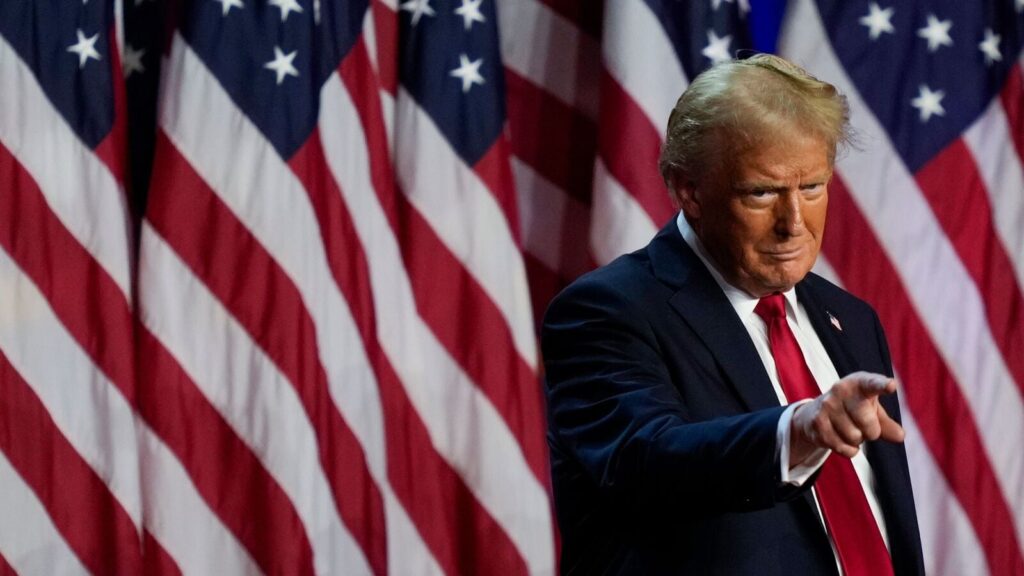Mumbai: Donald Trump’s electoral comeback has prompted some crystal-gazing into what his second term as American president could mean for Indian employees and students aspiring to move to the US. After all, his electoral promises of more jobs for American citizens and tighter immigration controls were bound to cause some consternation.
That said, domestic education and visa consultants are banking on Trump’s other rhetoric—to revive the US economy—to open a route at least for India’s much-vaunted technology employees and students pursuing highly skilled courses.
“The US economy needs skilled (immigrant) workforce and India may have a better standing versus China in addressing this,” said Narayanan Ramaswamy, partner and head–education and skill development practice, KPMG in India. He, however, added that the “real impact will play out in few years” depending on how the US economy shapes up.
Trump’s moves will be keenly watched especially by India’s information technology services companies, considering the US is the largest market for most of these firms. IT services companies ship employees to markets where their clients are located on temporary work visas. In June 2020, during his previous term as US president, Trump had suspended the issuance of all H-1B work visas, including for Indians.
The Nifty IT index gained 4% on Wednesday amid early trends pointing to a Trump victory.
Also read | Indian IT sector’s much-awaited moment has arrived: the US Fed rate cut
The bigger demographic watching his moves will be Indian students, for whom US colleges have always been the top choice—more so now as Canada and Australia have clamped down on the number of international students. According to a Mint report in April, more than 260,000 Indian students went to the US in the 2022-2023 academic session, a 35% jump over the previous session.
“On immigration, Trump 2.0 has already shown incredible clarity—more welcome ruling on international students that brings dollar and fixes talent gap, strong rhetoric on the growing illegal path-crossing on borders,” said Akshay Chaturvedi, founder and chief executive officer of education consultancy Leverage.biz.
Also read | India-Canada row: It’s failing Indian students
‘A mixed bag, but stable’
Mohak Nahta, chief executive of US-headquartered visa application platform Atlys, pointed out that Trump has proposed granting automatic green cards—or permanent residency—to foreign nationals graduating from US colleges.
“If implemented, this policy could be beneficial (for Indian students) as it aligns with their goal of retaining skilled graduates in high-paying jobs that support the local economy,” said Nahta. He, however, added that while the US “may restrict H-1B visas to some extent” it was likely to retain those who have studied in the US.
The US typically offers 85,000 H-1B visas every year. Of this, 60,000-65,000 visas are offered via lottery and the rest to highly qualified employees. H-1B visas allow US employers to recruit foreign nationals in the US on a temporary arrangement. Companies can also use L1 visas to get employees onshore.
Madhur Gujar, co-founder and chief business officer at study abroad platform Amber, however, said Trump’s recent proposal for automatic green cards for graduates and support for a merit-based immigration system would be favourable for India’s study-abroad market.
Also read | Why top tech executives are heading for India
“This focus on retaining high-skilled graduates could be beneficial in maintaining the flow of talented students from India, which is the largest source of international students in the US, surpassing China last year for the first time since 2009/10,” Gujar said, adding that he doesn’t expect any drastic policy changes in the near term.
Chirajeet Sengupta, managing partner at tech consultancy Everest Group, expects Trump’s electoral victory to signal a phase of stability for Indian technology outsourcing companies.
“While some of Trump’s visa stance has been hardline, he has also historically acknowledged that India’s technology workforce adds significant value to the US ecosystem,” he said. “While this does imply a mixed bag, on overall terms, India’s tech jobs ecosystem should remain stable.”
🎯 YouTube Tag Generator (Powered by Google Gemini)
⏳ Generating tags using Gemini API, please wait...




